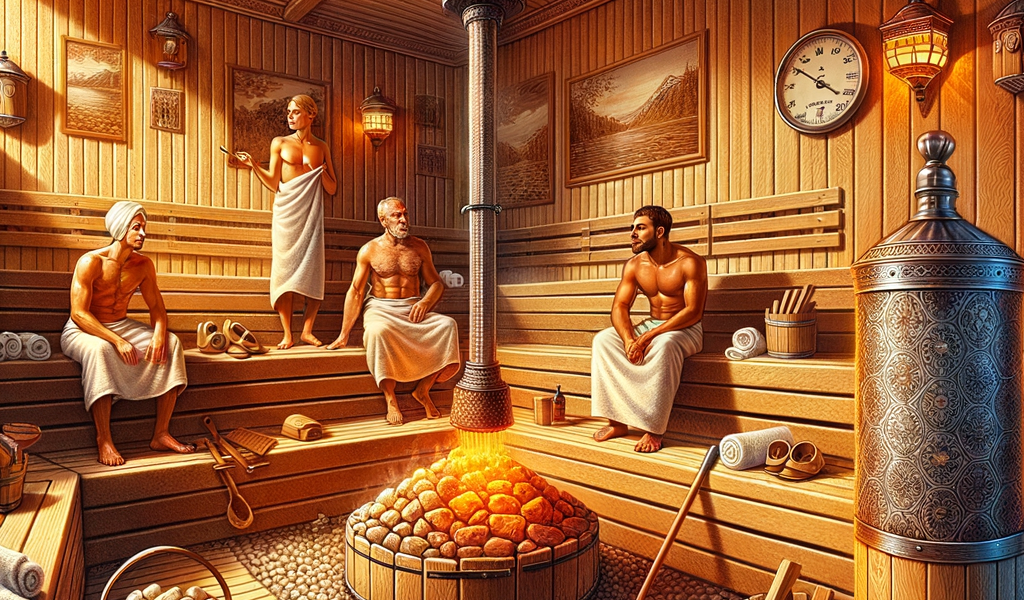In today’s fast-paced world, where digital interactions often replace face-to-face connections, traditional saunas offer a refreshing retreat where individuals can unwind, rejuvenate, and forge meaningful relationships. From ancient times to modern-day spa culture, saunas have been cherished for their health benefits, but perhaps their greatest value lies in their ability to bring people together.
Introduction to Traditional Saunas
Traditional saunas, originating from Nordic cultures, have been a cornerstone of community life for centuries. These wooden sanctuaries, heated by stones and infused with steam, provide a therapeutic environment for relaxation and reflection. Today, they remain a beloved tradition in many parts of the world, celebrated for their holistic approach to well-being.
Health Benefits of Traditional Saunas
Beyond their cultural significance, traditional saunas offer a plethora of health benefits. The heat promotes detoxification by stimulating sweat glands, flushing out toxins and impurities from the body. Additionally, the warmth soothes muscles, alleviating tension and promoting relaxation. Studies have also shown that regular sauna use can improve cardiovascular health, boost immune function, and even aid in weight loss.
Social Aspect of Sauna Culture
Yet, it’s the social aspect of sauna culture that truly sets it apart. Saunas serve as communal gathering spaces where individuals from all walks of life come together to unwind and connect. Whether in a public sauna house or a private residence, the experience is one of camaraderie, with people sharing stories, laughter, and sometimes even silence.
Physical and Mental Well-being
The social interaction inherent in sauna culture plays a vital role in both physical and mental well-being. Human connection has been linked to lower levels of stress, anxiety, and depression, making the sauna not just a place for relaxation but also a sanctuary for mental health. As individuals engage in meaningful conversations and exchange experiences, they forge bonds that transcend the confines of the sauna room.
Cultural Diversity in Sauna Practices
While the roots of sauna culture lie in Nordic traditions, variations of the sauna experience can be found across the globe. From the Russian banya to the Japanese onsen, each culture has its own unique rituals and customs surrounding heat therapy. This diversity not only enriches the sauna experience but also highlights the universal need for communal healing and connection.
Building Connections in Sauna Communities
In today’s increasingly fragmented society, the sauna serves as a rare space where barriers are broken down, and genuine connections are formed. Whether it’s through shared laughter, heartfelt conversations, or simple moments of silence, the sauna fosters a sense of belonging and acceptance. In this inclusive environment, individuals from diverse backgrounds come together as equals, united by a shared desire for relaxation and rejuvenation.
Sauna Etiquette and Respect
Central to the sauna experience is a culture of respect and mindfulness. Participants are encouraged to be mindful of others’ boundaries, respecting the silent sanctity of the sauna space. Additionally, cultural sensitivity is paramount, with an emphasis on inclusivity and diversity. By fostering an environment of mutual respect, saunas ensure that everyone feels welcome and valued.
Sauna Design and Architecture
The design of a sauna plays a crucial role in shaping the overall experience. Traditional sauna rooms are characterized by their use of natural materials such as wood, stone, and clay, creating a warm and inviting atmosphere. Modern saunas often incorporate elements of nature, with panoramic views and natural light enhancing the sense of connection to the outdoors.
Community Sauna Events and Gatherings
To further promote community engagement, many organizations host communal sauna events and gatherings. These gatherings provide an opportunity for individuals to come together, share experiences, and forge new friendships. Whether it’s a public sauna session or a private gathering among friends, the sense of community fostered in these settings is palpable.
Sauna as a Ritual of Self-Care
In today’s hectic world, self-care has become increasingly important. The sauna offers a sanctuary for individuals to prioritize their well-being, both physically and mentally. By incorporating regular sauna sessions into their wellness routines, individuals can reap the benefits of relaxation, detoxification, and social connection.
The Role of Saunas in Sustainable Living
As society becomes more environmentally conscious, traditional saunas offer a sustainable alternative to modern spa facilities. By utilizing renewable energy sources such as wood or solar power, saunas minimize their carbon footprint while maximizing their health benefits. Additionally, the use of natural materials ensures that saunas blend harmoniously with their surroundings, promoting a deeper connection to nature.
Sauna Safety and Guidelines
While saunas offer numerous health benefits, it’s essential to practice moderation and mindfulness. Hydration is key, as the heat can cause dehydration if not properly managed. Participants should also be aware of signs of overheating and take breaks as needed. Proper ventilation is essential to ensure a safe and comfortable sauna experience for all.
Preserving Sauna Traditions for Future Generations
As we look to the future, it’s crucial to preserve and celebrate the rich traditions of sauna culture. Educating future generations about the history and significance of saunas ensures that these timeless rituals continue to thrive. By passing down knowledge and practices, we ensure that the sauna remains a cherished sanctuary for generations to come.
The Future of Traditional Saunas
In an ever-changing world, traditional saunas continue to evolve to meet the needs of modern society. Innovations in sauna design and technology are making the experience more accessible and enjoyable than ever before. Yet, amidst these advancements, the core values of sauna culture remain unchanged – promoting health, community, and connection.
Conclusion
In conclusion, traditional saunas offer far more than just a place to relax and unwind. They provide a sanctuary for community and connection, fostering relationships that enrich both body and soul. As we navigate the complexities of modern life, the sauna serves as a timeless reminder of the importance of human connection and the healing power of community.
